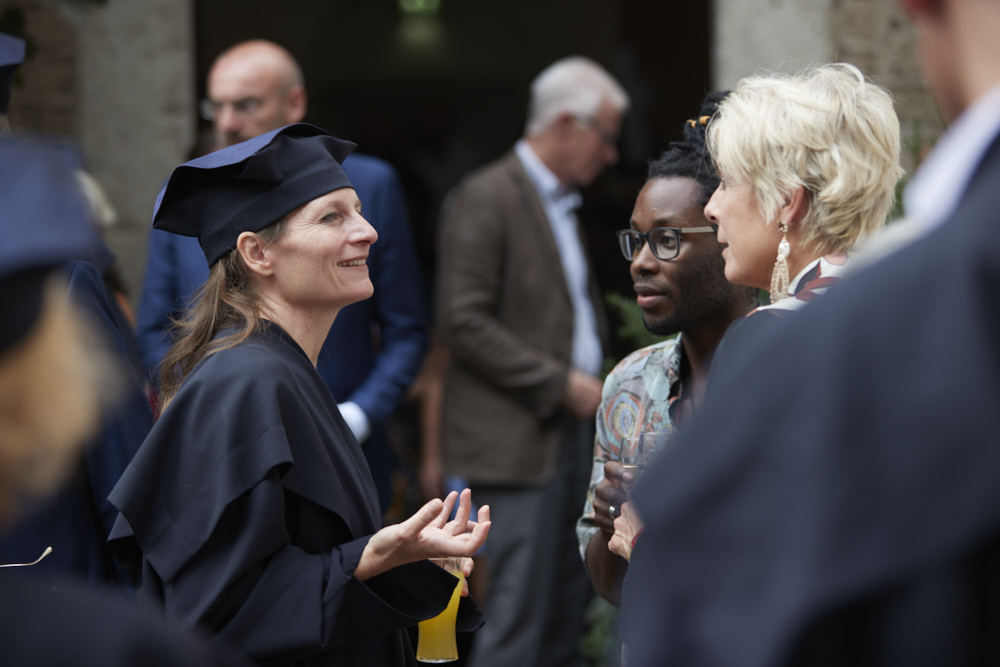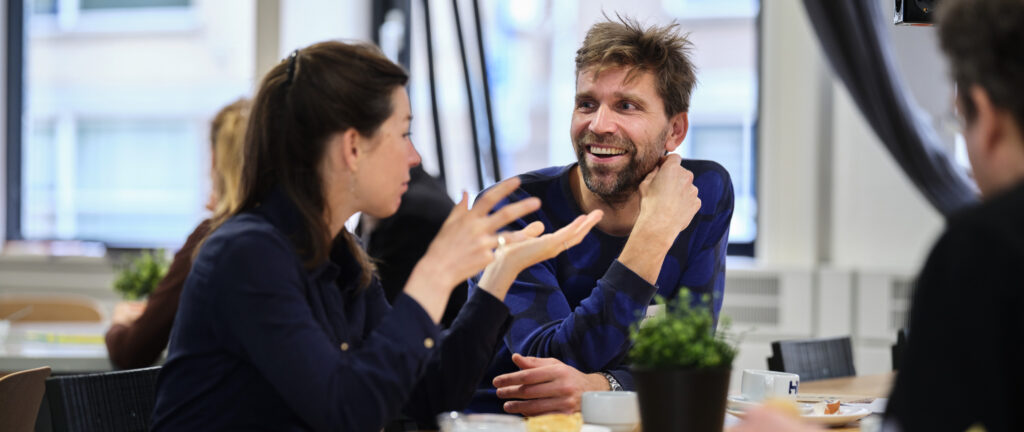Project WAVE: different approach of people with behaviour that is difficult to understand
- Duration: 2019-2022
- Status: completed
When caring for people with a severe or moderate intellectual disability and behaviour that is difficult to understand, caregivers do not always manage to help the person concerned in a satisfactory manner. Is it time to try something totally different? The WAVE project seeks to create more room for an implicit set of instruments: for the emotions, imagination, intuition and moral knowledge of all those involved. It is participatory research in a three-year partnership, with the aim of creating a learning community.
Description
Emotions, imagination, intuition and moral knowledge
In recent years, a great deal of knowledge and expertise has been developed in supporting people with intellectual disabilities and behaviour that is difficult to understand. Unfortunately, care professionals regularly find themselves in situations that can come to a standstill. In addition, since the 1990s a certain form of professionalisation has slowly but surely gained the upper hand. As a result of this trend, professionals are less and less invited to use their implicit tools (such as emotions, imagination, intuition and moral knowledge) in their daily work. These sources of knowledge are of great value in dealing with situations of problem behaviour and preventing stagnation.
Twelve protagonists
Knowledge and experiences of those involved are formed in a certain (care) context. That knowledge and experiences are at most part of the story of someone with a mental disability and problem behaviour; the protagonist is central. The ambition is to start 12 trajectories around a protagonist, in which more attention will be paid to the implicit instruments.
Use of outsider researchers
Within WAVE we use ‘outsider researchers’. They are people with no experience in professional care, but with a special professional or personal background that has (had) a strong influence on the way they look at life and relate to others. This means that outsider researchers look at the situation of the protagonist for the first time from the perspective of their own education, with the result that much that is implicit for the care professionals involved is not ‘normal’ for them. This allows them to challenge care professionals to think and speak in a different way about ways of acting, routines and assumptions.
Shadowing of newcomers
It is common sense in the field of work that graduates go through a strong socialisation process in the transition from training to work. Experience shows that trainees or starting employees initially wonder about all kinds of things, but soon go along with the existing ways of thinking and acting. This rapid socialisation is important for the continuity of care processes, but it also ensures that alternative perspectives on dealing with people with problem behaviour in stuck situations are not further explored. Within WAVE, students are given the opportunity to connect to the participating cases. We hope that the exchange between and with outsider researchers will encourage them to continue to explore, articulate and sharpen their own fresh perspectives, questions, doubts and intuitions.
Researchers
- Dr. Gustaaf Bos
- Dr. Vanessa Olivier-Pijpers (CCE)
- Dr. Klaartje Klaver (CCE)
Partners
WAVE is a partnership established by CCE, the University of Humanistic Studies, and VUmc Metamedica. The following healthcare institutions are part of this partnership:
- ASVZ
- Ipse de Bruggen
- Prisma
- Severinus
- Siza
- Vanboeijen
WAVE also collaborates with various educational institutions:
- Amsterdam University of Applied Sciences (AUAS) (Social Work)
- Rotterdam University of Applied Sciences (Social Work and Nursing)
- Utrecht University of Applied Sciences (HU) (Social Work)
- HAN University of Applied Sciences (Arnhem and Nijmegen) (HBO-V and Social Work)
- Rotterdam University of Applied Sciences (Social Work)
- Erasmus University Medical Centre Rotterdam (AVG Training)
In addition, KansPlus and Platform EVB+ are involved throughout the project.
(Co-)funding
Project WAVE receives funding from ZonMW through the Long-Term Care and Support programme.
Also see
- Website: projectwave.nl.
An animation of one of the outsiders:
Contact
Dr. Gustaaf Bos, g.bos@uvh.nl or Vanessa Olivier-Pijpers (CCE).



